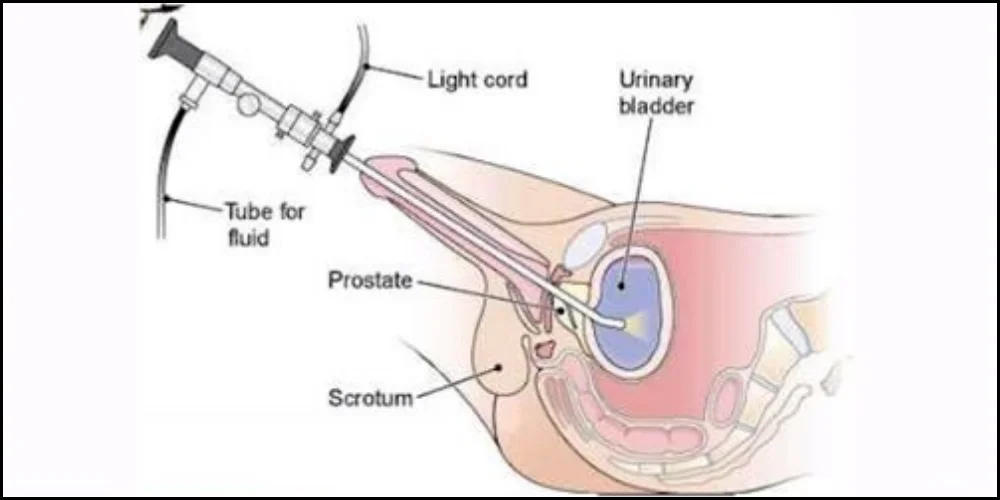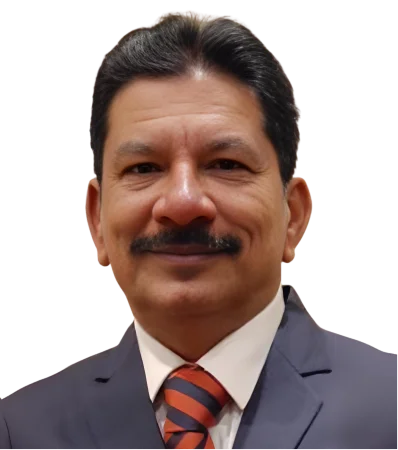Prostatectomy Surgery
Targeted Treatment for Prostate Conditions with Advanced Techniques
Prostatectomy surgery is an essential procedure to treat a variety of prostate diseases, such as prostate cancer as well as benign prostatic hyperplasia (BPH). The procedure involves the removal of all or a portion of the prostate gland in order to deal with issues like cancerous tumors or other symptoms. The procedure is performed at Chirayu Super Speciality Hospital, our expert team of Oncologists and urologists offer state-of-the art prostatectomy procedures that are customized to the specific needs of each patient to ensure the highest quality of treatment and accuracy.

What is Prostatectomy Surgery?
Prostatectomy surgery consists of the removal of some or the entire prostate gland, contingent on the condition being treated. The prostate gland which is located beneath the bladder and behind the rectum plays a important part in the health of sexual health of males. Prostatectomy is typically used to combat prostate cancer, reduce signs of benign prostate hyperplasia (BPH) or to address other prostate-related problems. Prostatectomy can be performed using a variety of methods, including laparoscopic surgery, open surgery, and robotic-assisted surgery.
Who Performs Your Surgery?
Prostatoscopy performed at Chirayu Super Speciality Hospital is performed by a group of highly experienced Oncologists and urologists with a specialization in prostate surgeries. The specialists use the latest procedures and techniques to ensure the best results. They work in conjunction with a multidisciplinary group, comprising pathologists, radiologists and nursing personnel in order to provide you with a comprehensive treatment that is tailored to your specific condition and requirements.
Types of Prostatectomy Surgery
- Open Prostatectomy : The traditional surgical method involves an incision larger than the abdomen to eliminate the prostate. It is often used for prostates that are larger or for more complicated cases.
- Laparoscopic Prostatectomy : Minimally-invasive method that involves tiny incisions and cameras to aid in through the process of removing the prostate. It typically provides quicker recovery as well as less postoperative pain.
- Robotic-Assisted Laparoscopic Prostatectomy : The most advanced technique where robots assist the surgeon to perform precisely controlled and precise movements using tiny incisions. This procedure usually results in less loss of blood in the procedure, less pain, and quicker recovery.
- Transurethral Resection of the Prostate (TURP) : A minimally invasive procedure in which the resectoscope is introduced into the urethra in order to eliminate obstructions prostate tissue. It is often used to treat BPH.
Indications for Prostatectomy Surgery
- Prostate Cancer : To remove cancerous tumors as well as surrounding tissue, dependent on the stage of cancer as well as degree.
- Benign Prostatic Hyperplasia : To ease the symptoms of an overly large prostate, for example, urinary obstruction.
- Prostate Abscess : For treating an infection which has developed into an abscess in the prostate gland.
- Prostate stones : To remove stones of large size that can cause problems or symptoms.
Diagnosis Leading to Prostatectomy
Diagnosis usually involves the combination of prostate-specific antigen (PSA) test and digital rectal examinations (DRE) imaging tests (ultrasound, MRI), and the results of a biopsy. The decision on whether to proceed with prostatectomy depends on the stage, type, and degree of prostate disease in addition to the overall health of the patient and treatment objectives.
Treatment Process
Prostatectomy can be performed in general anesthesia. The duration of the procedure varies based what type of operation as well as the individual aspects. Following surgery, patients are checked for healing, and this includes controlling the pain and monitoring for any complications. The majority of patients are discharged within a couple of days, with specific post-operative guidelines provided from the surgeons.
Care and Recovery After Surgery
Prostatitis recovery involves the management of post-surgical discomfort, which includes discomfort and changes in urinary function. The patients are urged to adhere to an individual care plan, which includes wound care, activity limitations and follow-up appointments to track the healing process. It is crucial to follow these guidelines in order to maximize healing and improve results. The majority of patients return to normal activities after a few weeks, but the full recovery could take months.
Advantages of Choosing Our Surgery Services
Expert Surgical Team
Our team of skilled urologists and oncologists specializes in prostatectomy surgery, ensuring precise and effective treatment.
Advanced Techniques
We utilize the latest surgical technologies, including robotic-assisted surgery, to enhance precision and improve recovery times.
Comprehensive Care
Our multidisciplinary approach provides comprehensive care, addressing all aspects of your treatment and recovery for optimal outcomes.
What Our Patients Say
Read about our patients positive experiences and how Chirayu Super Speciality Hospital has positively impacted their health and well-being.


I highly recommend Chirayu for prostate surgery. The entire experience, from consultation to recovery, was handled with expertise and compassion.


The treatment for my prostate condition was effective, and the supportive staff at Chirayu made the recovery process smooth and manageable.


The expert team at Chirayu delivered excellent results with my prostatectomy. I felt supported throughout the process and am very pleased with the outcome.


The care and precision I received during my prostatectomy were outstanding. The team at Chirayu made a challenging experience much easier.
Meet Our Medical Specialists
Our skilled specialists offer advanced prostatectomy surgery with a focus on precision, care, and optimal outcomes for prostate health.
Frequently Asked Questions
Here, we provide answers to some of the most commonly asked questions to help you better understand about our surgery services. If you have any additional questions, please do not hesitate to contact us.
Benefits include effective treatment of prostate cancer or BPH, relief from symptoms, and potential improvement in quality of life.
Risks include infection, bleeding, urinary incontinence, sexual dysfunction, and changes in sexual health.
Types include open prostatectomy, laparoscopic prostatectomy, robotic-assisted laparoscopic prostatectomy, and transurethral resection of the prostate (TURP).
Candidates include men with prostate cancer, significant benign prostatic hyperplasia (BPH), or other prostate-related issues that require surgical intervention.
Prostatectomy surgery involves the removal of part or all of the prostate gland to treat prostate conditions such as cancer or BPH.



